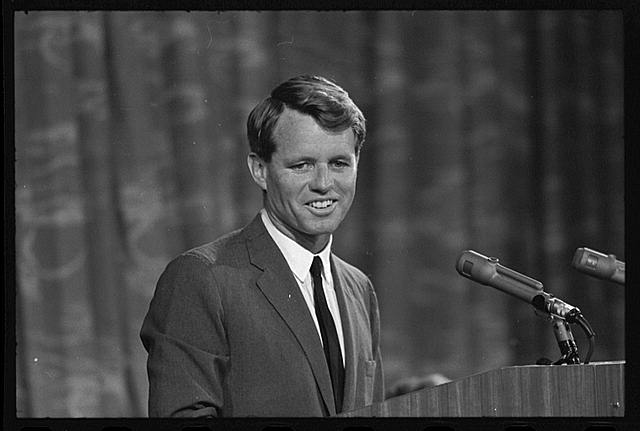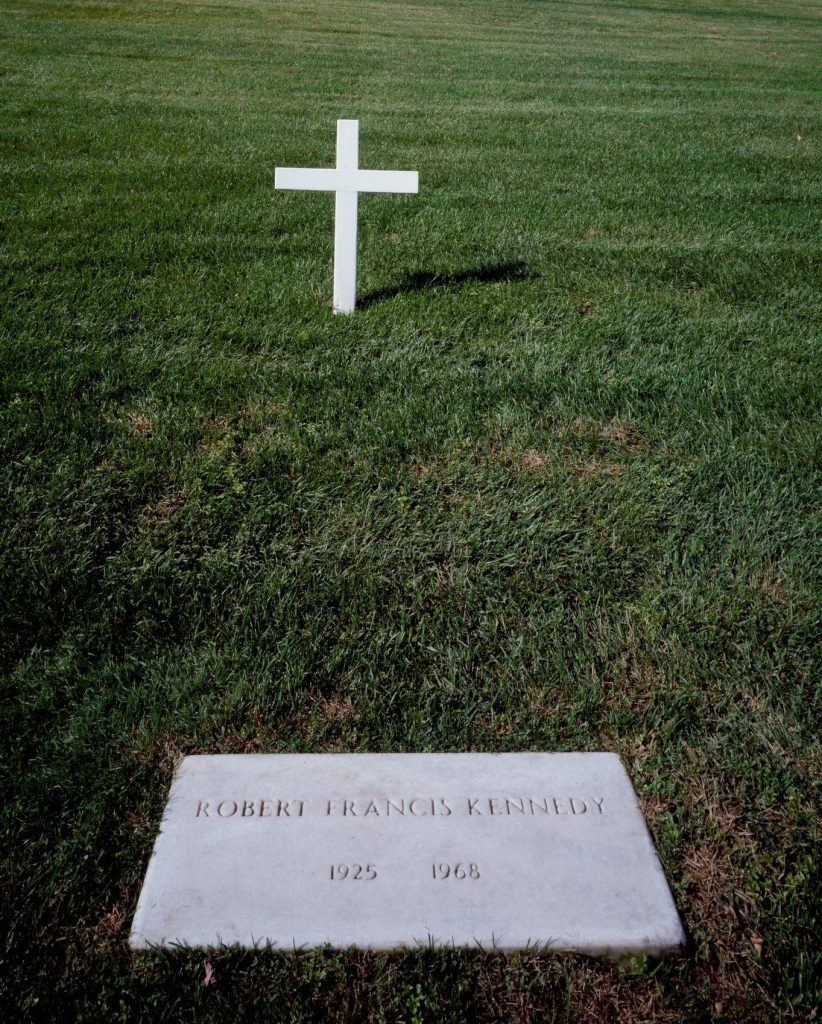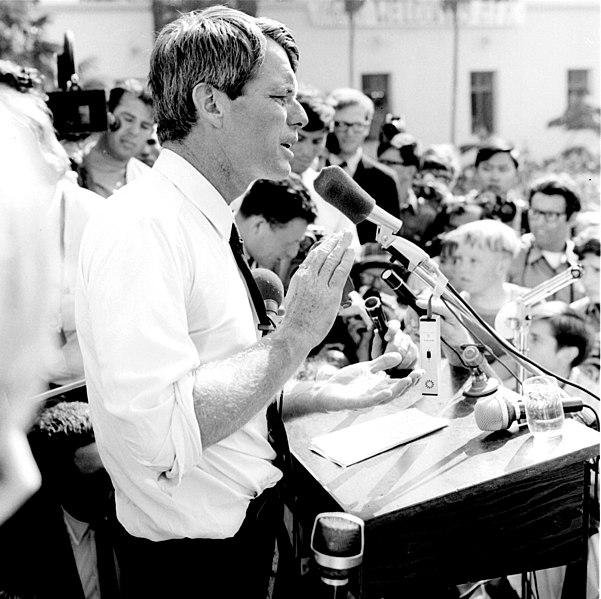
The assassination of presidential candidate Robert F. Kennedy early on the morning of June 5, 1968 tragically ends a campaign that seems all but certain to unseat President Richard Nixon.
Kennedy is born into a politically-connected family and helps run his brother John’s campaign for the presidency. Elected in 1960, President John F. Kennedy appoints “Bobby” as Attorney General, a post he holds for nearly four years. Following the assassination of his brother, Robert Kennedy resigns and successfully seeks a seat in the United States Senate representing New York.
Robert Kennedy serves in the Senate for four years, during which the unpopularity of President Lyndon Johnson continues to grow due to mounting losses in Vietnam. After initially deciding not to seek the presidency in 1968, Kennedy changes his mind March 10 after visiting with United Farm Workers co-founder Cesar Chavez in California at the conclusion of a hunger strike led by Chavez.
Kennedy announces his candidacy on March 16. Two weeks later, President Johnson withdraws from the race.
After initial setbacks, including losing the primary in his home state of Massachusetts, Kennedy begins to build momentum. That momentum peaks in early June, when he wins the California primary and becomes the presumptive Democratic nominee. Hours after the polls close, just before midnight, Kennedy addresses a victory party at the Ambassador Hotel in Los Angeles.

“I think we can end the division in the United States. What I think is clear is that we can work together in the last analysis, and what has been going on in the United States over the period of the last three years–the divisions, the violence, the disenchantment with our society, the divisions–whether it’s between blacks and whites, between the poor and the more affluent, or between age groups, or on the war in Vietnam, that we can start working together. We are a great country, a selfless country and a compassionate country.”
Moments later, as Kennedy exits the ballroom filled with his supporters, he is shot three times by Sirhan Sirhan. Medical personnel rush him to a nearby hospital and although extensive attempts are made to save his life, he dies the following day.
With Kennedy dead, the Democratic nomination goes to Hubert Humphrey. Nixon defeats Humphrey in the November election, becoming the first-ever President from California.
